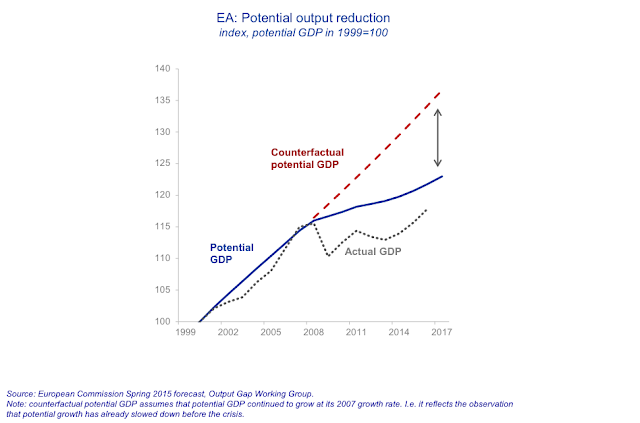Dissecting the Eurozone's (lack of) inflation

Eurozone inflation is in the doldrums again. After perking up to 1.7% in April, it slumped back to 1.2% in May. According to Bloomberg , this was "lower than expected". But I wonder who, apart from the ECB, really expected anything else. Core inflation has been well below target for the last five years: (chart from Bloomberg) And although the headine HICP measure increased in 2016-18, this was mostly due to the oil price bouncing back from its 2014-15 slump: (chart from Macrotrends) The wild swings in the energy inflation rate can be clearly seen on this chart from Eurostat: It's perhaps not obvious at this resolution, but the movement in headline HICP is almost entirely due to the energy price. In fact comparing the inflation and oil price charts, it is hard to see much justification for the ECB's claim that it started QE in March 2015 because inflation expectations were becoming "unanchored". Headline HICP briefly dipped below zero...





